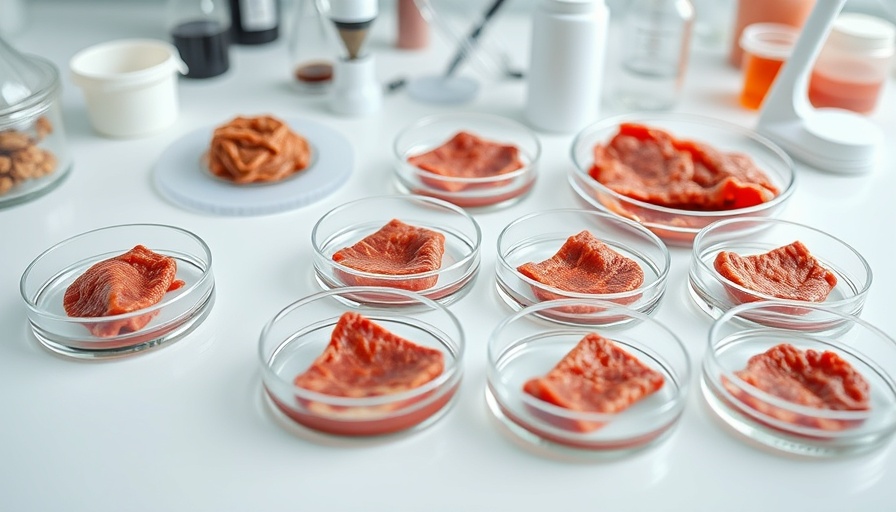
A Fresh Perspective on Meat Consumption and Health
As the rapidly evolving world of food technology continues to grow, the conversation around cultivated meat is gaining momentum. It is essential to discuss how this innovative approach could reshape not only our diets but also our health as a society. More than 95% of human exposure to harmful industrial pollutants, such as dioxins and polychlorinated biphenyls (PCBs), generally comes from consuming animal products like fish, meat, and dairy. What if cultivating muscle meat directly could dramatically change this predicament?
The Case for Cultivated Meat
Cultivated meat, or lab-grown meat, aims to minimize health risks traditionally associated with animal products. By focusing on just muscle tissue, we can significantly reduce the incidence of foodborne illnesses and lessen exposure to antibiotics, pesticides, heavy metals, and toxic hormones linked to conventional meat production. The U.S. Food and Drug Administration (FDA) has approved several hormone drugs to enhance milk and meat production, posing additional risks to health. In contrast, European regulations have completely banned these hormone treatments, emphasizing differing approaches towards meat safety.
Environmental Contaminants: A Hidden Threat
Research shows that environmental contaminants, including arsenic and dioxins, gather in the food chain, creating a perilous pathway of toxins that ultimately reach our plates. As the World Health Organization projected, processed meat is a known carcinogen, while unprocessed meats are marked as probable carcinogens—not accounting for the pollutants that lurk within. Limiting consumption of traditional meats could dramatically lower cancer risk, but many don't know that even organic meat can harbor these toxic substances.
Understanding the Organic Meat Myth
When discussing health, it's crucial to debunk myths that surround organic meat. Surprisingly, several studies indicate that organic meat sometimes contains higher levels of persistent organic pollutants (POPs) than conventional meat. This highlights the fact that organic doesn't always mean healthier. Consumption of organic meat does not automatically diminish the risk linked with POPs, making it crucial for consumers to consider cultivated alternatives that eliminate these toxic risks altogether.
Health Benefits: A Clear Choice
Those with health conditions such as arthritis and osteoporosis may find cultivated meat especially appealing, as it can be produced without the chemical additives and toxins found in traditional meat products. Directly cultured meat could transform dietary options for these individuals, offering a path to safer protein sources without compromising taste. Embracing cultivated meat can positively support various health goals and enhance overall well-being.
Looking Ahead: The Future of Protein Sources
As regulations evolve and technology develops, the potential of cultivated meat presents an optimistic future where we can enjoy delicious meals without jeopardizing our health. In a world striving for sustainability, shifting towards safer, lab-grown protein sources could prove transformative for public health and food safety.
In conclusion, as we navigate the complexities of food safety, it's essential to remain informed about the potential benefits cultivated meat can offer. By embracing this innovative approach, we might not only safeguard our well-being but also pave the way for a more sustainable food system.
 Add Row
Add Row  Add
Add 




Write A Comment